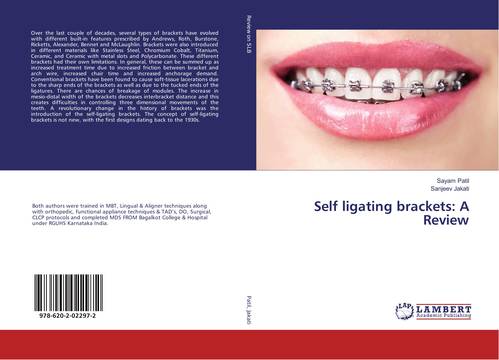

Self ligating brackets: A Review
在这笔交易显示的剩余时间用完之后,该交易将结束。在此之前不处理交易订单。
价格
55.90 €
50.31 €
团购还未被接受
1 需要更多本书
- ISBN-13:
978-620-2-02297-2
- ISBN-10:
- 6202022973
- EAN:
- 9786202022972
- 书籍语言:
- 作品简介:
- Over the last couple of decades, several types of brackets have evolved with different built-in features prescribed by Andrews, Roth, Burstone, Ricketts, Alexander, Bennet and McLaughlin. Brackets were also introduced in different materials like Stainless Steel, Chromium Cobalt, Titanium, Ceramic, and Ceramic with metal slots and Polycarbonate. These different brackets had their own limitations. In general, these can be summed up as increased treatment time due to increased friction between bracket and arch wire, increased chair time and increased anchorage demand. Conventional brackets have been found to cause soft-tissue lacerations due to the sharp ends of the brackets as well as due to the tucked ends of the ligatures. There are chances of breakage of modules. The increase in mesio-distal width of the brackets decreases interbracket distance and this creates difficulties in controlling three dimensional movements of the teeth. A revolutionary change in the history of brackets was the introduction of the self-ligating brackets. The concept of self-ligating brackets is not new, with the first designs dating back to the 1930s.
- 出版社 :
- LAP LAMBERT Academic Publishing
- 网址:
- https://my.lap-publishing.com
- 由(作者):
- Sayam Patil, Sanjeev Jakati
- 页码 :
- 144
- 发表日期:
- 2017-08-28
- 现货:
- 备有现货
- 类别:
- 牙科学
- 价格:
- 55.90 €
- 关键词:
- orthodontics, Self Ligating brackets



















